Although there are parts of our life here that are very pedestrian, and similar to home, there are also day to day differences that make living in Nepal a new experience. We have become used to most of these things, but I thought my home friends might be interested.
Living on compound in the hospital is a bit special. We have a lot of people with reasonable salaries and money in a small area, so deliveries are reasonable. We have a few perks that typical nepalis don’t have or don’t need.
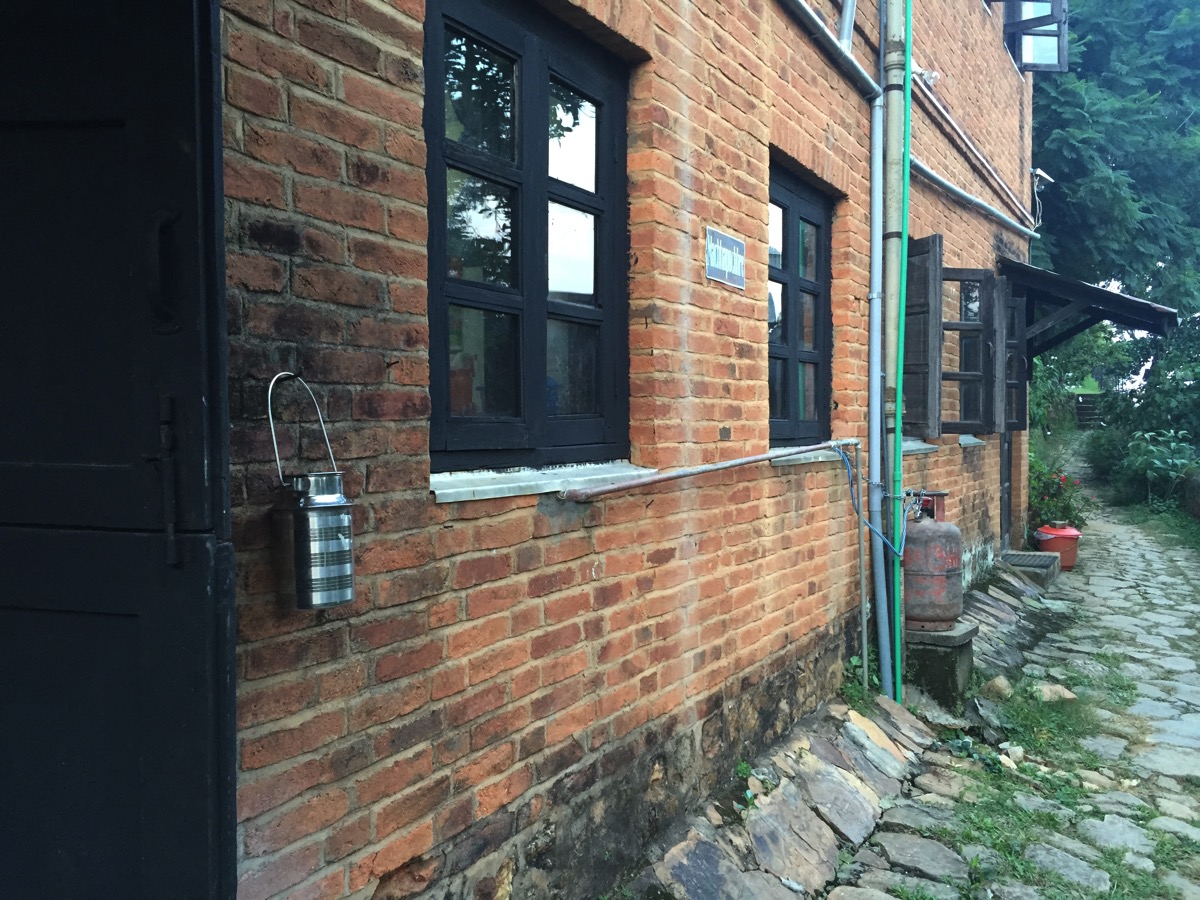
- Every day a milk man comes to deliver milk. We leave a stainless steel container hanging on the wall outside our house, and he brings a new litre of milk and takes the old one away. The milk is fresh, not treated in any way, and we have to boil it ourselves.
- Once a week a pineapple man comes to our door with a big bag of pineapples for about $1.20 each. We buy six for the week and share them between friends.
- The power fluctuates constantly. The compound has a generator that powers the hospital. When the power drops out, we get it back in a few minutes. But we can be sitting in the dark for five or ten minutes. There is a bell that rings when the power gets interrupted and when it is a particularly long break in power, we imagine the generator man running desperately to put it back on. Because the power fluctuates so much, electrical equipment is at risk from surges. We try to have appliances plugged into surge protectors where we can.
- We have security guards on every gate of the hospital compound. Their role is partially to ensure people don’t leave the hospital without paying, but also to perform some version of crowd control. As a result the compound houses are less public than a lot of nepali houses, where life is lived on the front step. However, it also means our kids don’t really meet the neighbourhood children.
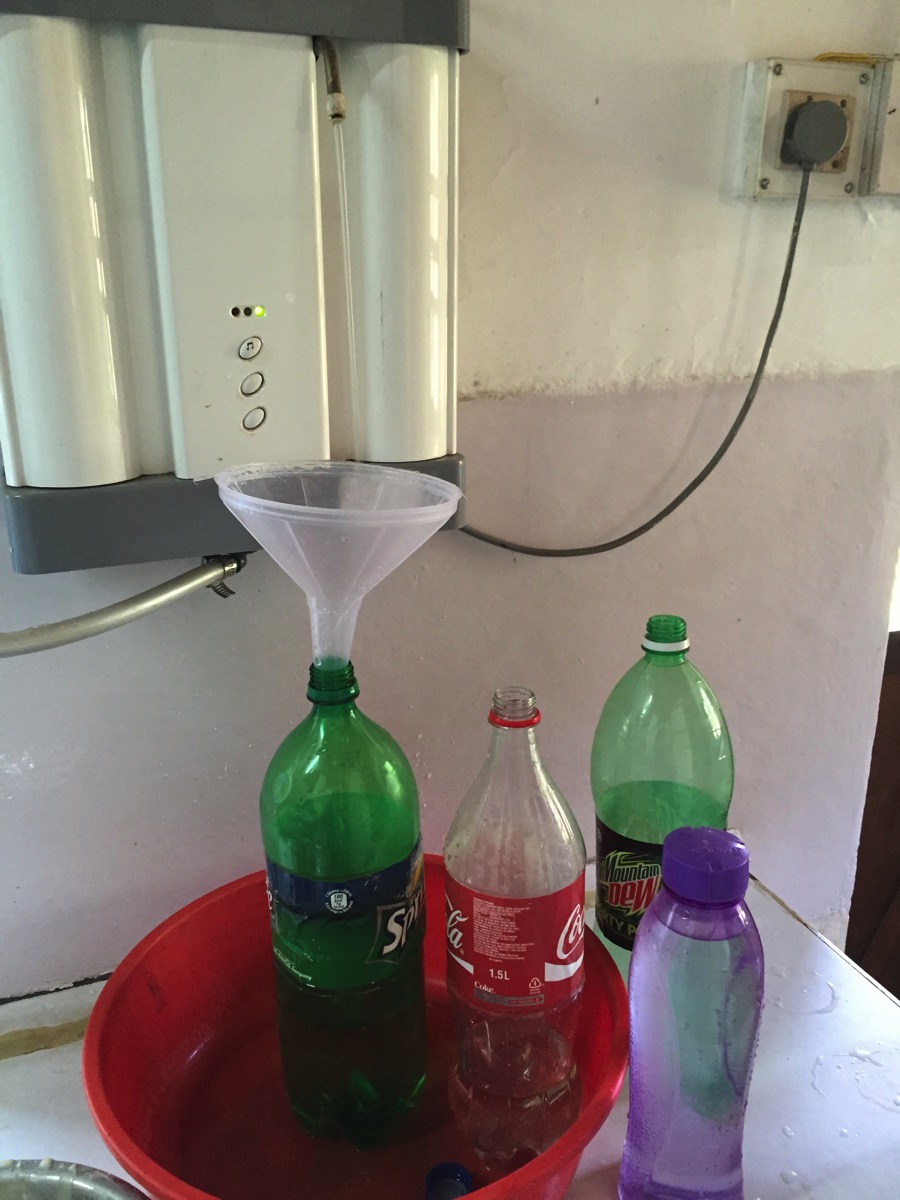
- Tap water is not purified in any way, so we have to filter it through a wall purifier before we can drink it. Some families also boil it, but we haven’t needed to so far. This means a regular job is to fill bottles. It is tempting to speed up the water flow, but then it doesn’t filter as well.
Other parts of our life are also different to home
- We use buckets in the bathroom if taps drip and use that in the washing machine, or to wash floors.
- We have no air conditioning. We are up at altitude, so it gets cool at night for about nine months of the year, but it is humid for a lot of the year, especially during the day. We are lucky in our house as we have lots of windows so we can get airflow with fans.
- During monsoon, everything is wet, and mould attacks anything leather that is not used regularly. It’s really hard to know whether to wash it off, or wait for drier weather. Some people pack up their winter clothes in March into airtight plastic barrels to stop them getting moist in the first place.
- There are insects EVERYWHERE. It seems this is most of the year, and it is certainly compounded by the older buildings and poorly-fitting flyscreens etc. However, I am pretty sure Nepal has more insects and bigger insects than any other country I’ve lived in.
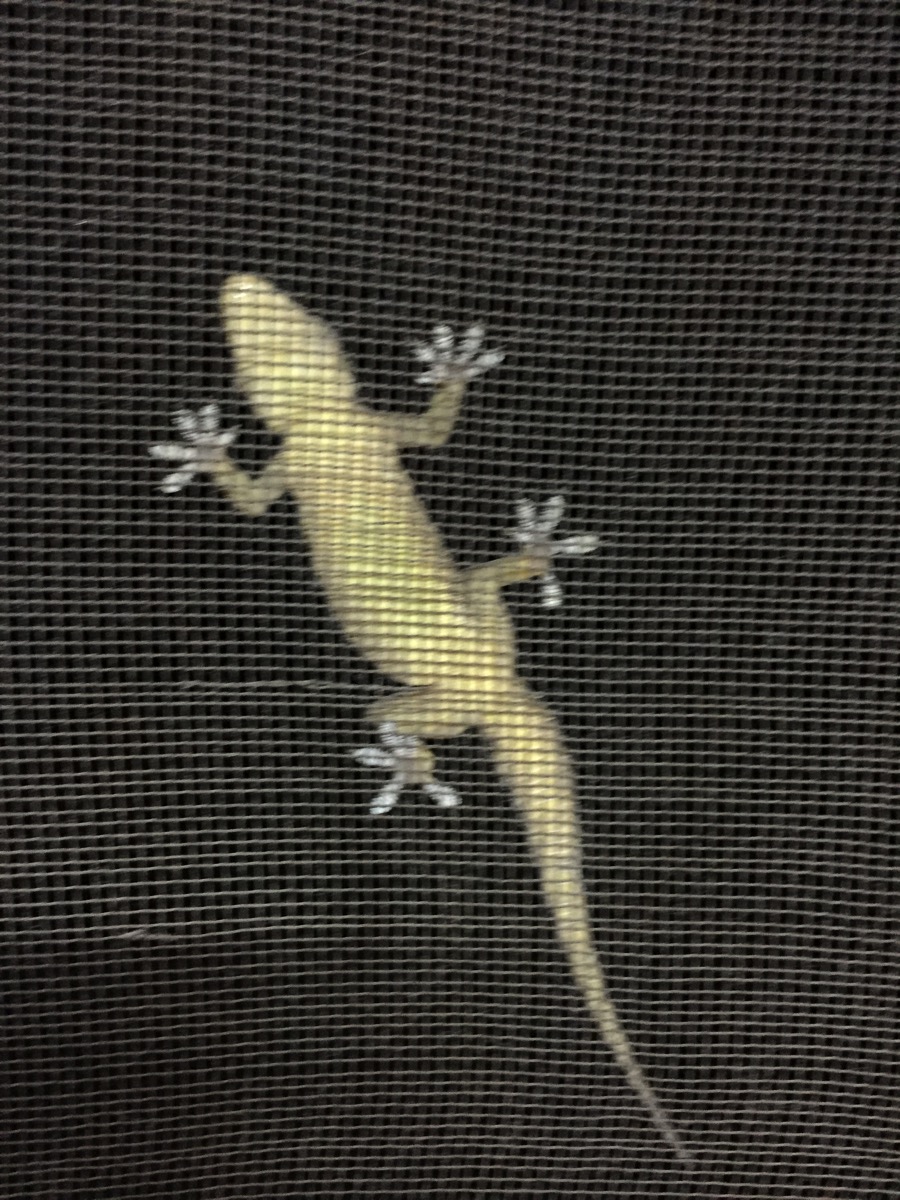
- Ditto geckos. They, no doubt, eat the insects. They like to sit on the outside of the window screens at night. Zoe has a regular visitor she calls Fred.
- Everywhere is wet, and built to withstand massive torrents of rain. There are paths and a lot more mud. Therefore, everyone wears sandals or thongs (flip flops) most of the year except winter. Waterproof is important.
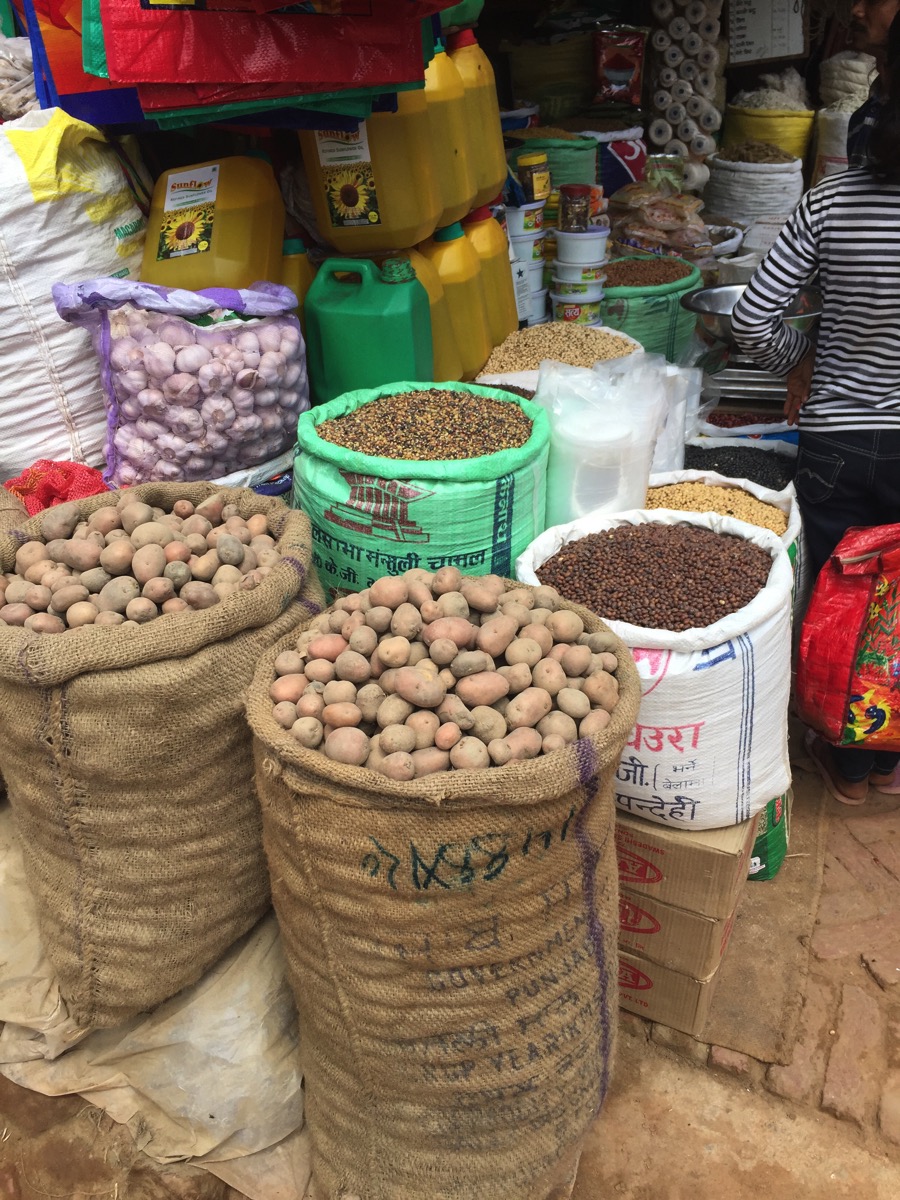
- Shops in our town are mostly Nepali style – a counter with a lot of bags of goods behind it. You walk up to the counter and ask for what you need. I guess it means that people talk to each other a lot more, but it’s pretty intimidating for me.
- Cars and vehicles are more expensive here than at home. And people earn less, which means that vehicles are much more uncommon. Usually people who have the money to own a car use it to earn money as a taxi or delivery service.
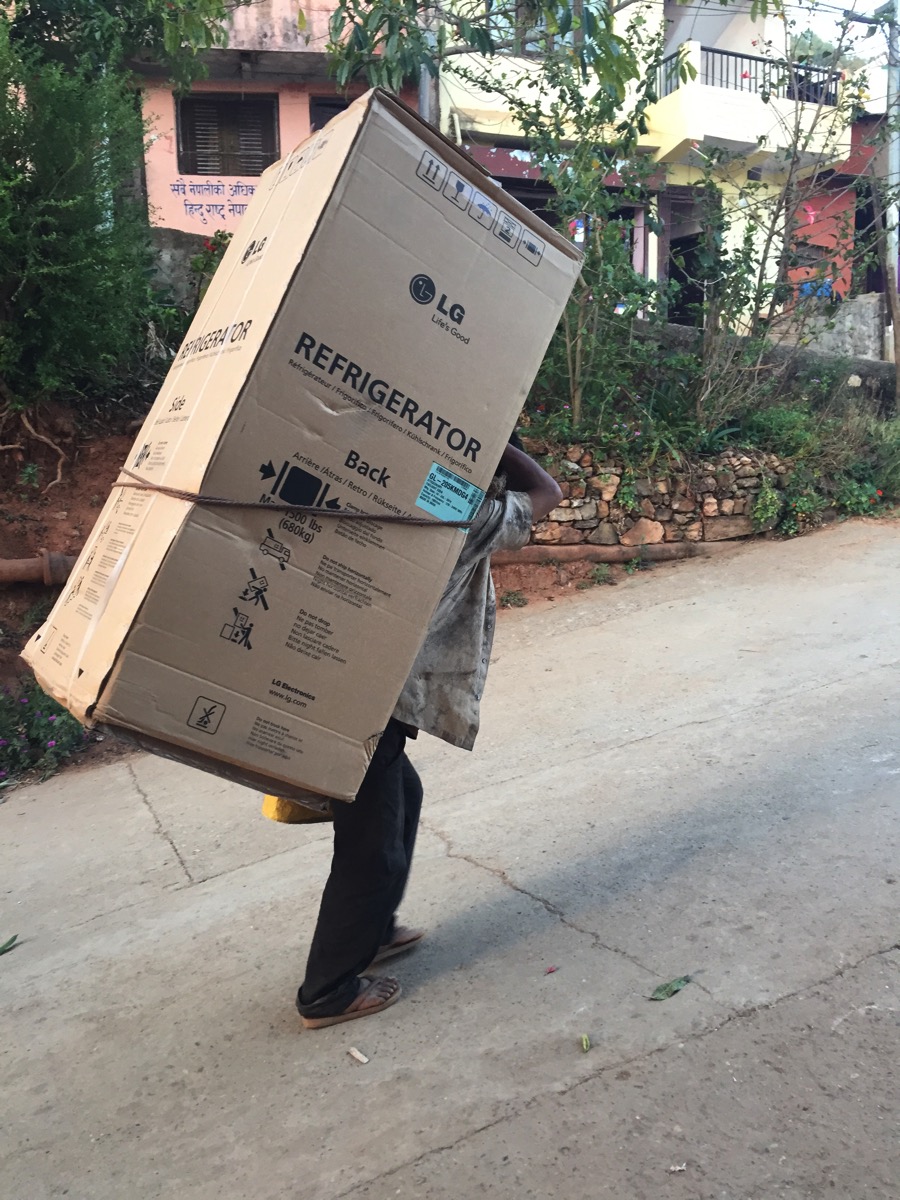
- Most deliveries around Tansen are performed by a porter. This can include massive boxes and appliances, even fridges and washing machines. It is not uncommon to see housewives walking from the water tap with a basket of full water containers on her back (usually female – males less commonly carry water).
- Because there are no supermarkets as such, and deliveries need to be carried, we shop much more regularly. We go to bazaar normally two or three times a week to pick up fancy ingredients and our didi shops for staples outside the front gate almost every day.
- Packaged foods are a bit fancy, and available in restricted brands, but everyday food is very fresh and good. However, fruit and veg is very seasonal here. I remember arriving in February and our driver stopped to buy a big bag of oranges. I was confused until I realised that most of the year you can’t get oranges – just a that particular time. So when they’re in season, you eat lots.
- Coffee is a western thing. In Kathmandu you can get good coffee, and in the bazaar you can get an iced coffee, but spiced tea (chiya or chai) is the drink of preference. Most conversations work better with chiya and you purchase it in small cups at 12 cents a pop. Everyone has their own preference for chiya spices, so it generally tastes a little bit different. It is brewed with lots of sugar and powdered milk.
- Labour, and skilled labour is very cheap. Tailors are more common than ready made clothing and it is often cheaper to pay for the tailoring than the material. I can get a tunic and pant set sewn up to my measurements for about $3, although the pre-embroidered or printed set costs more than that. So we get a lot of clothes made and altered, as it is easy.
- You can get shoes made, and it is common for work and school shoes. People buy “off the rack” shoes for casual shoes and sneakers.
Another difference at the moment, is I am meant to be studying language this week, which is why you are getting so many blogposts! So I defer to my better judgement and return to study.
Leave a Reply